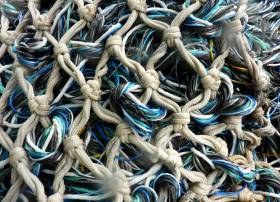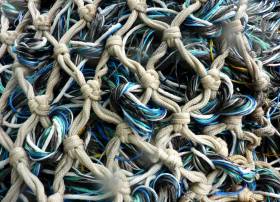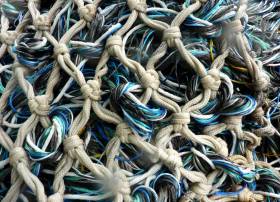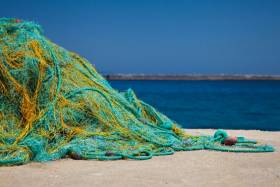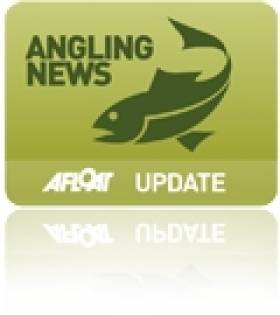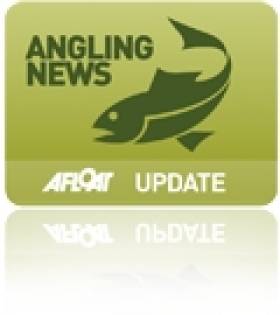Displaying items by tag: exploitation
#Fishing - Rules introduced to regularise migrant workers in the Irish fishing industry are still not working, according to the Irish branch of the International Transport Workers' Federation.
As RTÉ News reports, ITF Irish co-ordinator Ken Fleming said the Atypical Working Scheme for non-EEA fishing crew was not ensuring the protections it promised — as news emerged last week of four Ghanaian fishermen allegedly trafficked into Ireland after paying for what they believed were jobs in the UK.
Fleming said of the men’s work contracts: “[They] didn’t have any of the normal inclusions … that you would expect. But moreover, [the men] had no legal entitlement at all to be in the south of Ireland.”
Fleming’s comments on the Atypical Working Scheme echo those made in February last year by Senator Ged Nash, who called on the Government to replace the scheme launched in February 2016 in the wake of an investigation by the Guardian newspaper into exploitation of migrant workers in the Irish fishing fleet.
This time last year, a report from the Workplace Relations Commission said more than a fifth of the Irish fleet employed undocumented workers in 2016.
RTÉ News has more on the story HERE.
#Fishing - Migrant fishermen’s allegations of continued exploitation within the Irish fishing industry have been supported new figures that claim more than a fifth of the fleet employed undocumented workers last year.
That’s according to Fora, which cites figures from the latest annual report of the Workplace Relations Commission — indicating 28 cases out of 126 inspections where its officials found non-EEA employees without valid work permits.
The same report also notes a further 59 employments rights breaches on Irish trawlers in 2016.
This latest news comes just weeks after Labour Senator Ged Nash told the Seanad that new rules introduced to regularise migrant workers in the Irish fishing industry are not working – with many fishermen allegedly putting in more than double the hours for which they are guaranteed the minimum wage.
The scheme was introduced in the wake of the Guardian investigation into alleged widespread exploitation of migrant labour — but just 182 of the available 500 permits had been issued as of mid February this year, with five more issued by the end of March.
Meanwhile, two prosecutions have gone forward since the scheme was introduced in February 2016, but in both cases the defendants were cleared of wrongdoing.
Fora has much more on the story HERE.
Migrant Fishermen Claim Continued Abuse On Irish Trawlers, Says Senator
#Fishing - Rules introduced to regularise migrant workers in the Irish fishing industry are not working, according to a Labour senator.
Addressing the Seanad last Wednesday (8 February), Senator Ged Nash called on the Government to replace the scheme launched in February 2016, following revelations in the Guardian newspaper of alleged widespread exploitation of migrant workers across the Irish fishing fleet.
The Guardian reports that just 182 of 500 one-year permits have been issued, according to Department of Justice figures.
Meanwhile, Senator Nash said migrant fishermen from Africa and Asia continue to allege “alarming” abuses over pay and working hours — claims supported by the Migrant Rights Centre Ireland and Nasc Ireland.
Last October, a number of fishing harbours were raided by gardaí and State agencies in a sting operation focused on undocumented workers — though no evidence of exploitation was found.
The Guardian has more on the story HERE.
Fishing Ports Raided In Undocumented Worker Sting
#Fishing - Fishing ports in Howth and Castletownbere were raided by gardaí and State agencies yesterday (Wednesday 5 October) in a sting operation focused on undocumented workers, as The Irish Times reports.
The raids come after revelations last November in the Guardian newspaper alleging exploitation of migrant workers in the Irish fishing industry.
In the wake of that story, then Marine Minister Simon Coveney announced a cap on work permits in the fishing industry to 500 across the fleet, a scheme that was launched this past February but has seen few applicants.
Raids have also been reported in Co Louth as part of an ongoing investigation into illegal practices within the industry, which is estimated to employ around 1,000 foreign workers.
That’s according to the International Transport Workers Federation, which says it has sent inspectors to ports around the country since January to gather evidence.
The Irish Times has much more on the story HERE.
Marine Minister Announces Cap On Fishing Industry Work Permits
#Fishing - Renewable work permits for non-EEC nationals in the Irish fishing industry will be limited to 500, the Marine Minister has announced.
According to The Irish Times, Minister Simon Coveney says the new regime would initially apply only to those already employed in ports and on fishing boats, aimed at regularising people who may be working undocumented.
The proposal has been put forward by the cross-departmental taskforce established to investigate claims of widespread exploitation of migrant labour in the Irish fishing fleet. The Guardian's damning report on 2 November has been criticised by many in the industry.
“We want people who are currently working in the fishing industry but are undocumented - we want to change their status to make sure they are legally working here under a contract of employment," said the minister. "Then after that first three months, there will be a quota, a cap if you like, of 500 people.”
The Irish Times has more on the story HERE.
#Fishing - The daughter of the Tit Bonhomme's Irish skipper has joined those rejecting claims of widespread exploitation in the Irish fishing industry as revealed by the Guardian earlier the week.
Lia Ní Aodha, daughter of the late Michael Hayes and who is completing a PhD on the EU's Common Fisheries Policy at the University of Manchester, told The Irish Times in an open letter of her surprise at the allegations.
“It painted undocumented and abused as synonymous, it took the general conditions that go with a life at sea and painted them as exploitation, and it took tragedy at sea and painted it as easily avoidable,” she wrote.
In particular Ní Aodha criticised the Guardian's reference to the Tit Bonhomme tragedy, in which three Egyptian fisherman – Saled Mohamed Ibrahim Aly Eldin, Attia Shabaan and Wael Mohamed – died alongside her father and fellow Irish crew Kevin Kershaw. The Irish Times has more on the story HERE.
Ní Aodha's comments come days after an Egyptian fisherman was detained for failing to produce valid work documentation at the Tit Bonhomme's home port of Union Hall in West Cork.
Marine Minister Simon Coveney has since chaired the first meeting of the new cross-Government taskforce in response to the Guardian's allegations over human trafficking and safety breaches across the Irish prawn and whitefish fleet.
Egyptian Fisherman Charged As State Taskforce Begins Probe Into Fishing Fleet Exploitation Claims
#Fishing - An Egyptian fisherman was arrested in Union Hall yesterday (Wednesday 4 November) for failing to produce valid work documentation.
As The Irish Times reports, the news comes as the Government's new interdepartmental taskforce begins its investigation of issues raised by this week's claims of exploitation in the Irish fishing industry.
The fisherman in question was one of two Egyptian nationals questioned by gardaí in the West Cork fishing port yesterday as the Marine Survey Office was carrying out a safety inspection of their Irish-registered trawler.
He has been charged with an offence under the Immigration Act and was scheduled to appear before Bandon District Court today (Thursday 5 November) – the same day as the first scheduled meeting of the Government taskforce to decide on a "co-ordinated and effective cross-Government approach" to the treatment of workers across the Irish fishing fleet.
Meanwhile, the Migrant Rights Centre Ireland (MRCI) has called on Marine Minister Simon Coveney to declare an amnesty for undocumented workers on Irish prawn and whitefish boats "as a matter of urgency".
Yesterday a number of leading fishing industry figures hit out at the Guardian's report on exploitation in the Irish fleet, which highlighted the plight of a number of migrant fishermen who have made allegations of illegal fishing practices, breaches of safety regulations and trafficking of undocumented workers, among other issues.
Leading Fishing Industry Figures Dismiss Guardian Exploitation Report
#Fishing - The Guardian's damning exposé of exploitation in the Irish fishing fleet is not representative of the industry as a whole, according to the head of one of Ireland's top fishing co-operatives.
John Nolan of the Castletownbere Fishermen's Co-op told The Irish Times that his members "would have no truck with trafficking people or abusing people or anything like that and I can say that any foreign nationals working on our boats are treated the same as the Irish crew."
As previously reported on Afloat.ie, Monday's lengthy investigative report by the Guardian revealed evidence of exploitation of migrant workers at all main fishing ports in the Republic on both prawn and whitefish boats.
It also carried the first-hand accounts of a number of foreign fishermen, some of whom say they were trafficked into the State, ad who described a "catalogue of abuses" including overwork, sleep deprivation, being confined to their vessels in port, and lack of safety training – the latter believed to be a contributory factor in the tragic loss of five fishermen on the Tit Bonhomme of Union Hall in January 2012.
However, Nolan dismissed notions that the Irish fishing fleet is "some sort of sweatshop industry", adding that he "would be certain that 95 per cent of boat owners treat their crew properly and I just don't recognise the industry I know from the Guardian article."
His sentiments were echoed by The Skipper editor Niall Duffy, who argued that the majority of undocumented workers in the industry were comparable to Irish working without visas in the United States, and that the situation is "an entirely different issue to how they were treated".
In other fishing news, a skipper from Northern Ireland has been fined after being convicted of fishing for king scallops in a closed area off the Isle of Man.
As BBC News reports, Ryan Newell and the crew of his body Golden Fleece were caught fishing off the Manx coast on Sunday 1 November. He was fined £5,000 and ordered to forfeit his scallop catch, worth over £2,000.
NI Anglers Take to Facebook to Save Their Salmon
#ANGLING - Northern Ireland river anglers are taking a novel approach to lobbying Stormont over salmon exploitation by harnessing the power of social networking.
According to the News Letter, the NoSalmonNets campaigners "have swapped their fishing rods for laptop computers", using Facebook to attract support for their campaign to bring an end to the offshore netting of wild salmon stocks.
As previously reported on Afloat.ie, Northern Ireland's Department of Culture, Arts and Leisure (DCAL) has called for a voluntary ban on offshore salmon fishing, following new research that shows a significant drop in their numbers in the North's rivers.
Seamus Donnelly of NoSalmonNets has welcomed DCAL's recent decision to stop issusing licences for commercial salmon nets that may "contravene European law" off Antrim's north coast, made in an effort to protect salmon stocks in the Foyle river system.
Donnelly explained that the campaign was borne from frustration at the apparent inaction by the NI Executive over the protection of salmon.
“One of the keys to our success has to be Facebook," he said. "The internet has an unlimited reach and we took advantage of that.”
The News Letter has more on the story HERE.
Proposals to Lift Bass Fishing Ban Cause a Stir
The Government's proposals to lift the ban on commercial bass fishing has raised the ire of at least one letterwriter to The Irish Times.
Guy Pitcher writes in today's newspaper that "the commercial ban has saved this very slow-growing species from otherwise over-exploitation and ruin for decades to come".
He adds: "There is absolutely no hope and no precedent for believing that a commercial bass fishery could be 'sustainable' as it is, regrettably, human nature to grab as much as one can before someone else does."
The Englishman, who fishes regularly in west Cork, argues that any benefit to the economy from commercial fisherman "making a fast buck" is "dwarfed by the long-term sustained benefit from continued angling tourism".
Do you agree that lifting the ban will see a return to overfishing? Or do you think that any measure to assist Ireland's economic growth should be considered? Have your say in the comments below.


























